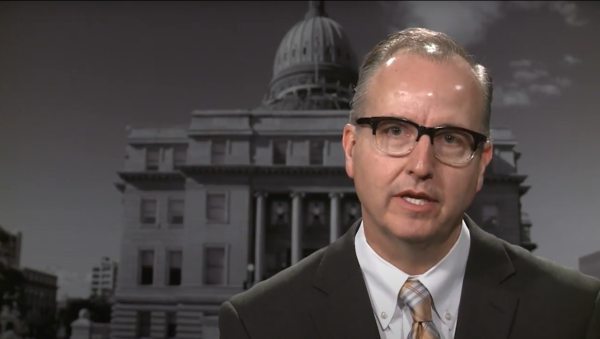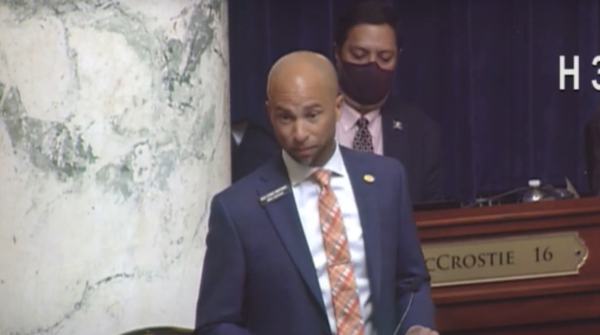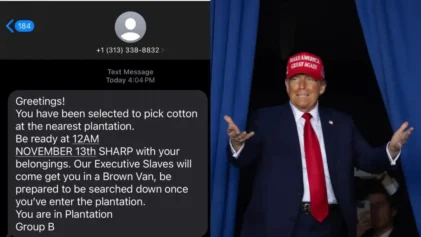Idaho Gov. Brad Little signed a bill on April 28 that prevents educators in state schools, including colleges, from “indoctrinating” students by introducing teachings on critical race theory.
According to Idaho state Rep. Ron Nate, the intellectual movement “demonizes white kids for being born.”

The bill, HB377, doesn’t ban critical race theory from being taught in the classroom, but prohibits teachers from presenting belief systems that claim groups are superior or inferior on the basis of race, ethnicity, sex or religion.
The bill states, “the Idaho legislature finds that the tenets … often found in ‘critical race theory’ … exacerbate and inflame divisions on the basis of sex, race, ethnicity, religion, color, national origin, or other criteria in a way contrary to the unity of the nation and the well-being of the state of Idaho and its citizens.”
The bill also makes it illegal for educators to compel students to “affirm, adopt or adhere to” the belief that present-day groups are responsible for the historical actions of the groups they belong to.
While proponents of the bill believe the legislation will prevent teachers from forcing their beliefs on students, others are concerned that the ambiguous writing in the bill could give lawmakers room to interpret the bill in different ways and exert control over what is taught in classrooms across the state. The term critical race theory is mentioned but never defined in the bill.
“It is a preventative measure,” the bill’s sponsor, Republican Sen. Carl Crabtree, argued on the Senate floor. “It does not indicate that we have a rampant problem in Idaho. But we don’t want to get one.”
Critical race theory first originated in the 1960s and is an intellectual movement based on the idea that race is a social construct used to exploit people of color. It asserts that legal institutions in the United States are inherently racist and help maintain social, political and economic inequalities, particularly between whites and Blacks.
After The 1619 Project was published in The New York Times, schools across the country began to integrate critical race theory into their curricula.
But lawmakers in states like Iowa, Louisiana, Missouri, New Hampshire, Oklahoma, Rhode Island, West Virginia and other states, have pushed back by drafting bills that ban or restrict the lessons, while similar bills have already passed in Utah, Arkansas and Tennessee.
Tennessee banned critical race theory from schools on Wednesday, and will withhold funding from schools that teach it. However, proponents of the bill haven’t cited specific examples of critical race theory being taught in schools.
State Sen. Brenda Gilmore, a Nashville Democrat, criticized the legislation.
“Contrary to what some people may think, being an African-American, I do not cast blame, but I think we do have to admit that slavery did occur,” Gilmore said. “It was a dark period in our history. We have to acknowledge the wrongs of our society even when it’s a difficult conversation to have.
Some Idaho lawmakers believe the movement promotes hate and racism.
“Public funds should never be used to promote hate and racism, Nate, one of the Idaho bill’s sponsors told ABC4. “House Bill 377 is a great win for Idaho because it prohibits the promotion of Social Justice programming and advocacy for Critical Race Theory (CRT) in our schools and universities. CRT, rooted in Marxist thought, is a pernicious way of viewing the world. It demands that everything in society be viewed through the lens of racism, sexism, and power. CRT tries to make kids feel bad because of the color of their skin, or their sex, or any other category—one group is seen as an aggrieved minority and another group is the oppressive majority.”
According to critics, the bill will further stifle conversations that are already difficult to have in the classroom.
Rep. Chris Mathias, the only Black member of the legislature, defended critical race theory against Republican attacks on the House floor, saying, “Critical race theory and critical race theorists do believe this single thing: that America’s social institutions, our legislatures, our courts, our schools, you name it, they do have, to varying extents, they are embedded, to varying extents, with some bias toward people of color,” Mathias said, according to the Idaho Statesman. “I don’t think that’s controversial.”

He continued, “When you look at outcomes, virtually every law and policy that we maintain has a disparate and adverse impact on people of color. Housing, health, education, wealth, income. People of color always come out on the losing end. Always, and I don’t think it’s unfair to acknowledge it. ”
While there is no penalty system for enforcing the law written into the legislation, Nate explained that enforcement will likely come through in the form of budget cuts because public funds shouldn’t be spent on “promoting or advocating for critical race theory or social justice promotion.”


